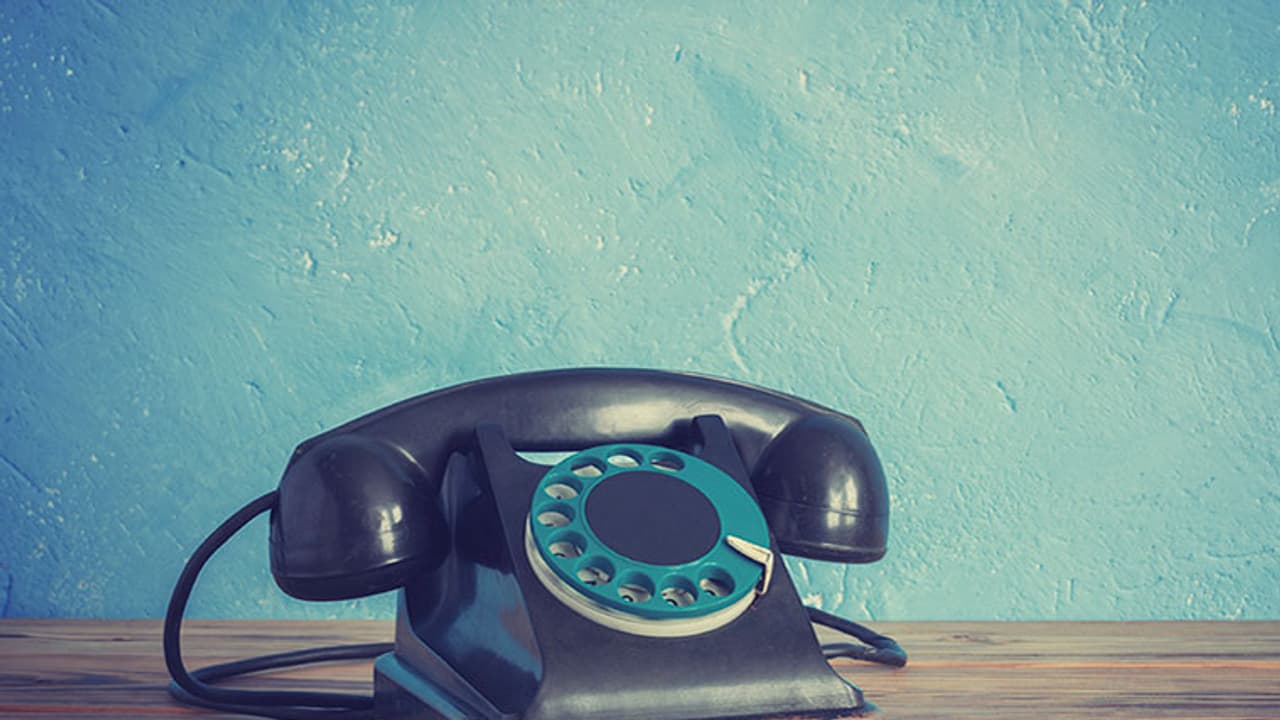Relationships — especially in the last couple of decades — hinge on the phone. I always regarded our instrument as a necessity, everyone had one, but I didn't have to be involved with it much.

At eleven, our housekeeper's son and I (we were both about the same age) used to spend summer afternoons dialling made-up numbers and making crank calls to people. Usually we wound up hitting offices, where one of us would put on a baby voice and ask for “Papa.” Sometimes we'd get a curt, “there's no papa,” but often, because people love kids as much as they love distractions on a boring work day, we'd be engaged in conversation.
We'd have to keep up our lisping voices, dying to laugh, and usually ended the call quite abruptly, bursting into hysterical giggles almost as soon as we put the handset back on the receiver. We had this old black rotary dial phone then, and it amuses me to see it pop up in “vintage” themed cafes now. “Vintage” is apparently what my childhood is now.
Almost overnight though, I graduated from bored afternoon prank calls to Real True Phone Calls. One minute the phone was of no interest to me, the next, I hung about it all the time, becoming that cliche of a pre-teen girl, my ears even pricking up at the dinner table as I scampered through the house to get to the phone before my parents did.
I didn't want them to know I had all sorts of people calling me now, boy people, and some of them even had already broken voices. Not that they were that interesting, even, to talk to, but somehow the phone became the central part of my social life. I longed for an answering machine like you saw in American TV shows, my own private line (ditto).
Ironically, despite my desperate longing for a Western, Archie-comic type teenage life, we danced around our Indian, traditional barriers. Everyone had a cordless phone, which we snuck into our bedrooms after our parents went to sleep. Everyone also knew what a “blank call” meant, when a boy couldn't ask for you by name because he didn't want to get you (or himself) in trouble with your parents and so he just hung up when he heard their voices.
Sometimes, when boys liked you, they couldn't even talk to you themselves, so you said, “Hello? Hello!” into the phone a lot, and far away, in the distance, you could hear someone breathing, and if you were me, you were so immensely flattered that someone had a crush on you, of all people, that you said, “Hello” longer and more happily than anyone else faced with a blank call would.
Then, all of a sudden, the rules changed and we were communicating with a keyboard. Suddenly, I grew from a shy, awkward sixteen-year-old to someone who always had witty repartee, and always had something to say. You couldn't blank call someone on the internet, and words had been my secret weapon for so long, I shot them like nuclear missiles across this IM program we all used called ICQ.
I had already been training myself on anonymous chat rooms, and suddenly, I had boys talking to me all the time. If they didn't say anything, I got bored and signed off, and often I'd log back in to find messages. Waiting for me! It's funny how most people pretended to be someone else on the internet and it was the first place I could be truly myself since I hit my teens. This was pre-emoticon, mind you, so we had to spell it out.
Sometimes I wonder if my whole relationship with the phone was a lead-up to how we use them now. No more crank calls or blank calls, but you can still hide behind an identity. Now, of course, I know who's calling as soon as my phone rings, but there's still a beat of anticipation before you look at your screen: who's calling me? What wonderful thing is going to happen today?
Meenakshi Reddy Madhavan is the author of five books, most recently a YA novel about divorce called Split and a collection of short stories about love called Before, And Then After. The views expressed here are her own.
